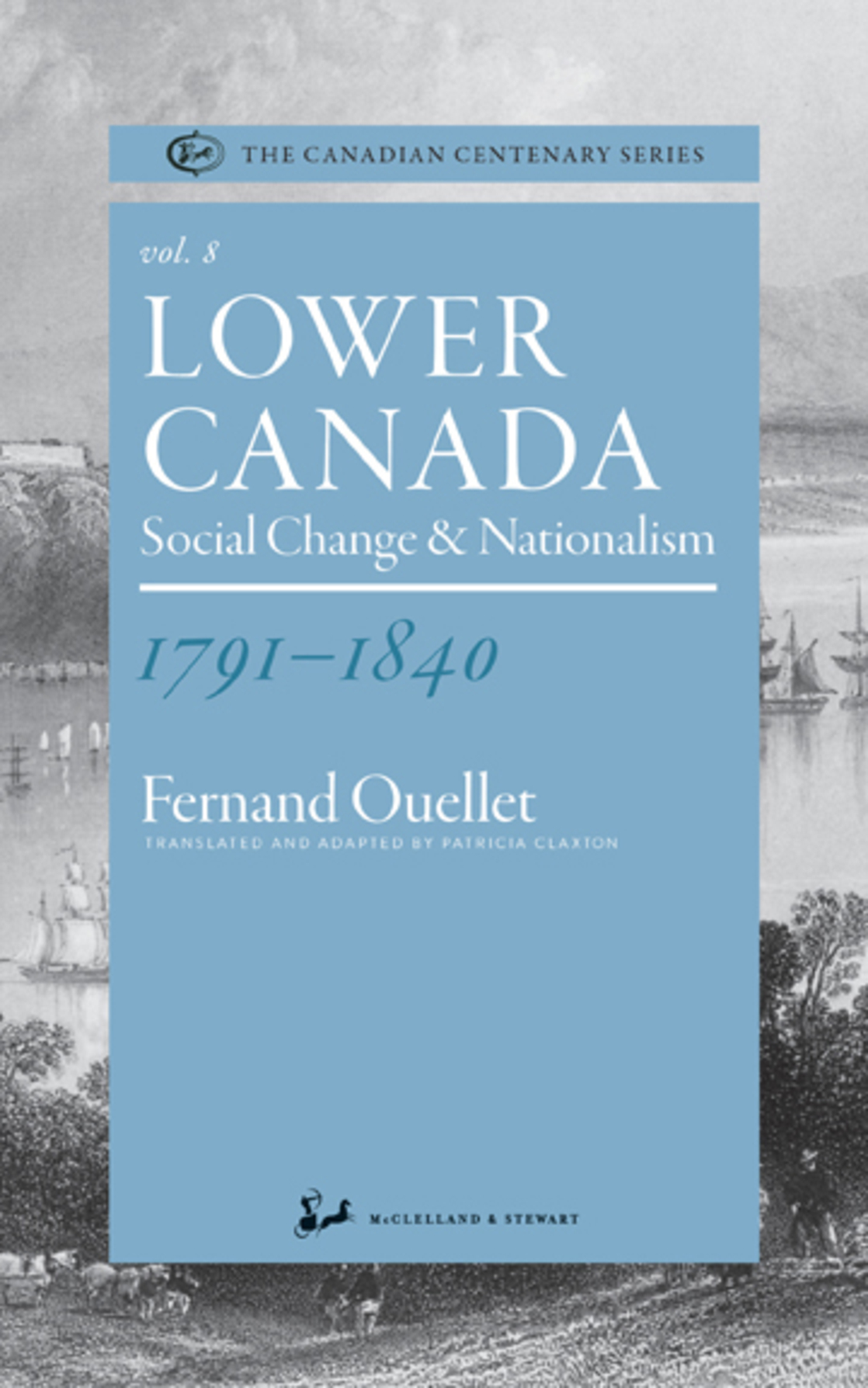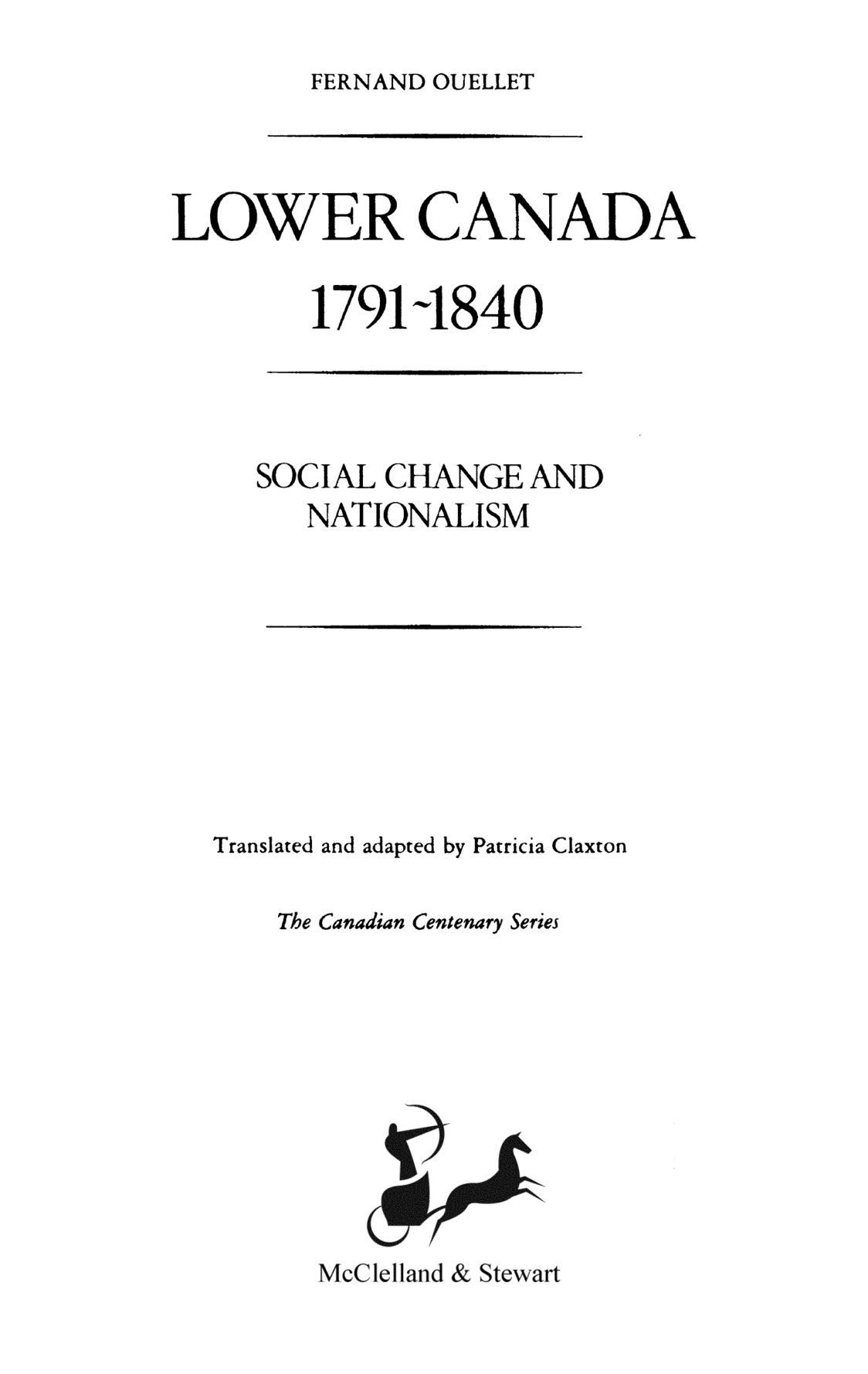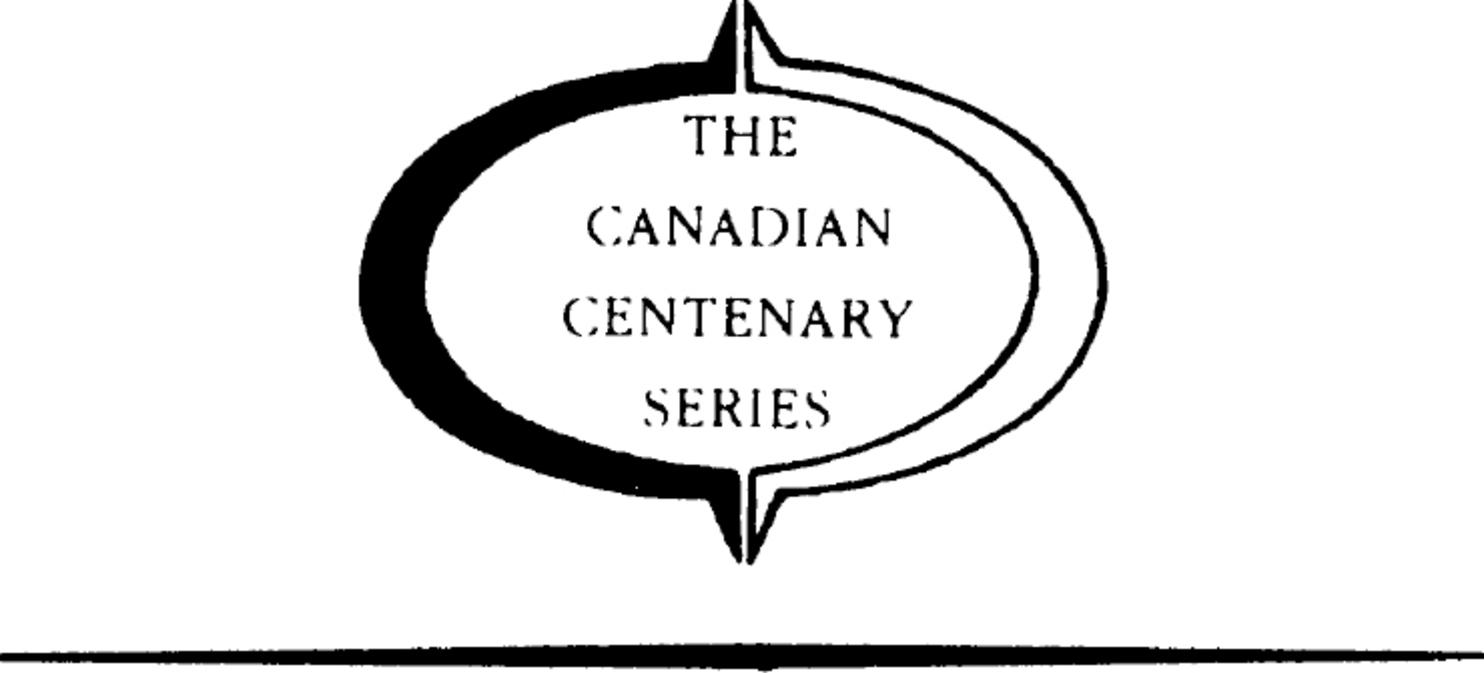Contents
Copyright 1980 McClelland & Stewart
Electronic edition published 2016
First published in hardback by McClelland & Stewart in 1980
Translation, abridgement, and adaptation of the authors Le Bas-Canada, 1791-1840
Volume 8 of The Canadian Centenary Series
All rights reserved. The use of any part of this publication reproduced, transmitted in any form or by any means, electronic, mechanical, photocopying, recording, or otherwise, or stored in a retrieval system, without the prior written consent of the publisher or, in case of photocopying or other reprographic copying, a licence from the Canadian Copyright Licensing Agency is an infringement of the copyright law.
Library and Archives Canada Cataloguing in Publication is available upon request
e-book ISBN9780771003424
Cover design by Colin Jaworski
Cover art from The Miriam and Ira D. Wallach Division of Art, Prints and Photographs: Print Collection, The New York Public Library. Quebec from the opposite shore of the St. Laurence. Retrieved from http://digitalcollections.nypl.org/items/510d47da-223b-a3d9-e040-e00a18064a99
McClelland & Stewart,
a division of Penguin Random House Canada Limited,
a Penguin Random House Company
www.penguinrandomhouse.ca
v4.1
a
A History of Canada
Ramsay Cook, EXECUTIVE EDITOR
1. Tryggvi J. Oleson
Early Voyages and Northern Approaches, 10001632
2. Marcel Trudel The Beginnings of New France, 15241663
3. W. J. Eccles Canada under Louis XIV, 16631701
4. Dale Miquelon New France, 17011744
5. G. F. G. Stanley New France, 17441760
6. Hilda Neatby Quebec, 17601791
7. Gerald M. Craig Upper Canada, 17841841
8. Fernand Ouellet Lower Canada, 17911840
9. W. S. MacNutt The Atlantic Provinces, 17121857
10. J. M. S. Careless The Union of the Canadas, 18411857
11. E. E. Rich The Fur Trade and the Northwest to 1857
12. W. L. Morton The Critical Years, 18571873
13. Peter B. Waite Canada, 18741896
14. Robert Craig Brown and Ramsay Cook Canada, 18961921
15. John Herd Thompson with Allen Seager Canada, 19221939
16. Morris Zaslow The Opening of the Canadian North, 18701914
17. Morris Zaslow The Northward Expansion of Canada, 19141967
18. D. G. Creighton Canada, 19391957
19. J. L. Granatstein Canada, 19571967
ALSO AVAILABLE IN PAPERBACK
Volumes I, III, VII, and XII of The Canadian Centenary Series were published with the help of grants from the Humanities Research Council of Canada.
CONTENTS
LOWER CANADA 1791-1840
Social Change and Nationalism
ma femme
TRANSLATORS NOTE
The translation and adaptation of an important and complex historical work raises a host of interesting problems which require much research, both linguistic and historical. Professor Ouellet has given generous attention to many points during the consultations necessary to ensure that his analysis and interpretation are accurately and clearly conveyed. Professor Morton has lent the benefit of his vast knowledge of Canadian history to the solution of a number of problems, particularly regarding terminology and original English quotations.
Many problems are technical, and most of these are minor. Thus, the measures minot and arpent are only roughly equivalent to bushel and acre, and it would be fallacious to translate them. A number of French terms, such as habitant, are not translated because they have a specific sense in the historical context. Terms that have no real equivalent in English are italicized or not according to custom or editorial decision: seigneur, for instance, is in roman and is spelled as in French, although in contemporary English quotations it often appears as seignior, a curious half-anglicized spelling which has been abandoned in present scholarly usage; censitaire, a much less familiar word, is italicized. Terms that are italicized in the body of the text are in roman when they occur inside a quotation originally in French. Theoretically, that is; for whatever rules one sets, once in a while circumstance seems to require that they be broken.
The conceptual parameters of certain French terms can confound the search for entirely satisfactory yet concise equivalents in English. An example is mentalit, used in a sociological sense; group mentality, which seems to be the closest English equivalent, needs to be understood as encompassing an entire pattern of thinking, values, and attitudes common to a social group, moulded by and inseparable from everything in the groups social and cultural context, past and immediate. The French word in italics would convey none of this, and would invite a simplistic identification with its English double. A number of potentially puzzling terms are briefly clarified or placed in perspective in the text.
Most intriguing for a translator are the intangibles, those things which transcend mere meaning atmosphere, irony, certain metaphors, archaic or personal language style, et cetera. Contemporary quotations are often rich with intangible content: Bishop Plessiss fire-and-brimstone, for instance. In direct and paraphrased quotations and throughout the text, every effort has been made to recreate the flavour of the original French.
In many original English quotations there is authentic quaintness. There are also authentic errors and clumsiness, as in statements by the Hungarian exile Fratelin. Diligence in tracking down the exact original versions of English quotations has sometimes gone unrewarded; in such cases the Chapter Note indicates retranslation.







